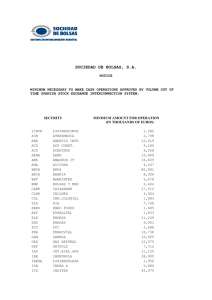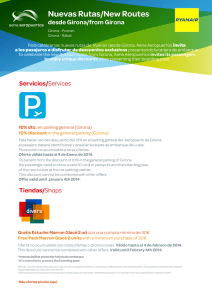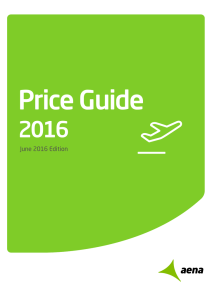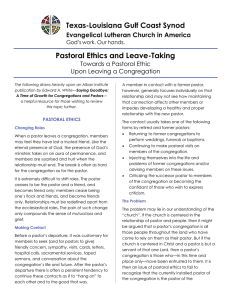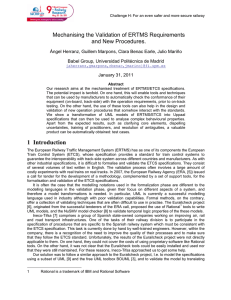Council of Ministers Government deregulates passenger railway
Anuncio
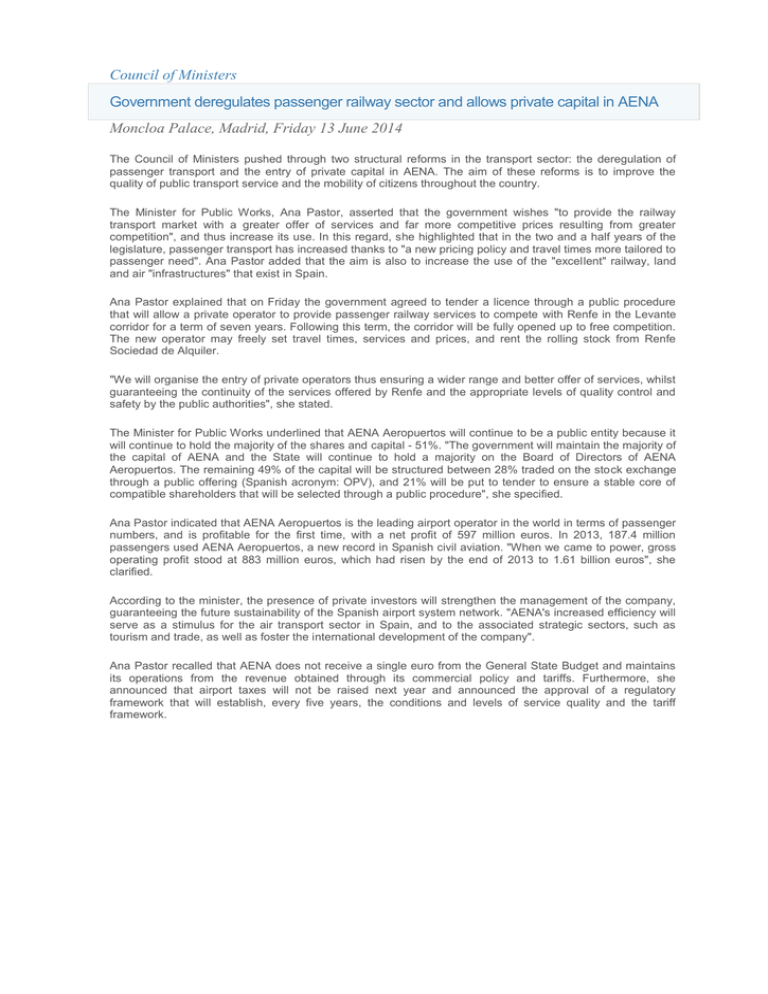
Council of Ministers Government deregulates passenger railway sector and allows private capital in AENA Moncloa Palace, Madrid, Friday 13 June 2014 The Council of Ministers pushed through two structural reforms in the transport sector: the deregulation of passenger transport and the entry of private capital in AENA. The aim of these reforms is to improve the quality of public transport service and the mobility of citizens throughout the country. The Minister for Public Works, Ana Pastor, asserted that the government wishes "to provide the railway transport market with a greater offer of services and far more competitive prices resulting from greater competition", and thus increase its use. In this regard, she highlighted that in the two and a half years of the legislature, passenger transport has increased thanks to "a new pricing policy and travel times more tailored to passenger need". Ana Pastor added that the aim is also to increase the use of the "excellent" railway, land and air "infrastructures" that exist in Spain. Ana Pastor explained that on Friday the government agreed to tender a licence through a public procedure that will allow a private operator to provide passenger railway services to compete with Renfe in the Levante corridor for a term of seven years. Following this term, the corridor will be fully opened up to free competition. The new operator may freely set travel times, services and prices, and rent the rolling stock from Renfe Sociedad de Alquiler. "We will organise the entry of private operators thus ensuring a wider range and better offer of services, whilst guaranteeing the continuity of the services offered by Renfe and the appropriate levels of quality control and safety by the public authorities", she stated. The Minister for Public Works underlined that AENA Aeropuertos will continue to be a public entity because it will continue to hold the majority of the shares and capital - 51%. "The government will maintain the majority of the capital of AENA and the State will continue to hold a majority on the Board of Directors of AENA Aeropuertos. The remaining 49% of the capital will be structured between 28% traded on the stock exchange through a public offering (Spanish acronym: OPV), and 21% will be put to tender to ensure a stable core of compatible shareholders that will be selected through a public procedure", she specified. Ana Pastor indicated that AENA Aeropuertos is the leading airport operator in the world in terms of passenger numbers, and is profitable for the first time, with a net profit of 597 million euros. In 2013, 187.4 million passengers used AENA Aeropuertos, a new record in Spanish civil aviation. "When we came to power, gross operating profit stood at 883 million euros, which had risen by the end of 2013 to 1.61 billion euros", she clarified. According to the minister, the presence of private investors will strengthen the management of the company, guaranteeing the future sustainability of the Spanish airport system network. "AENA's increased efficiency will serve as a stimulus for the air transport sector in Spain, and to the associated strategic sectors, such as tourism and trade, as well as foster the international development of the company". Ana Pastor recalled that AENA does not receive a single euro from the General State Budget and maintains its operations from the revenue obtained through its commercial policy and tariffs. Furthermore, she announced that airport taxes will not be raised next year and announced the approval of a regulatory framework that will establish, every five years, the conditions and levels of service quality and the tariff framework.
